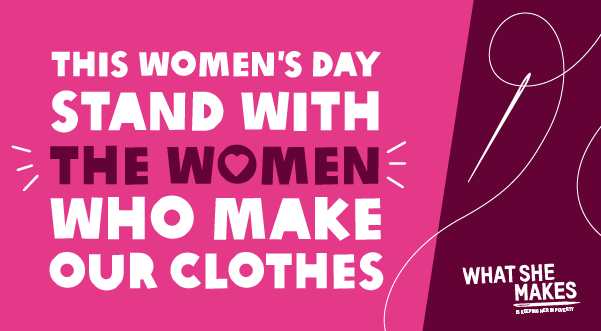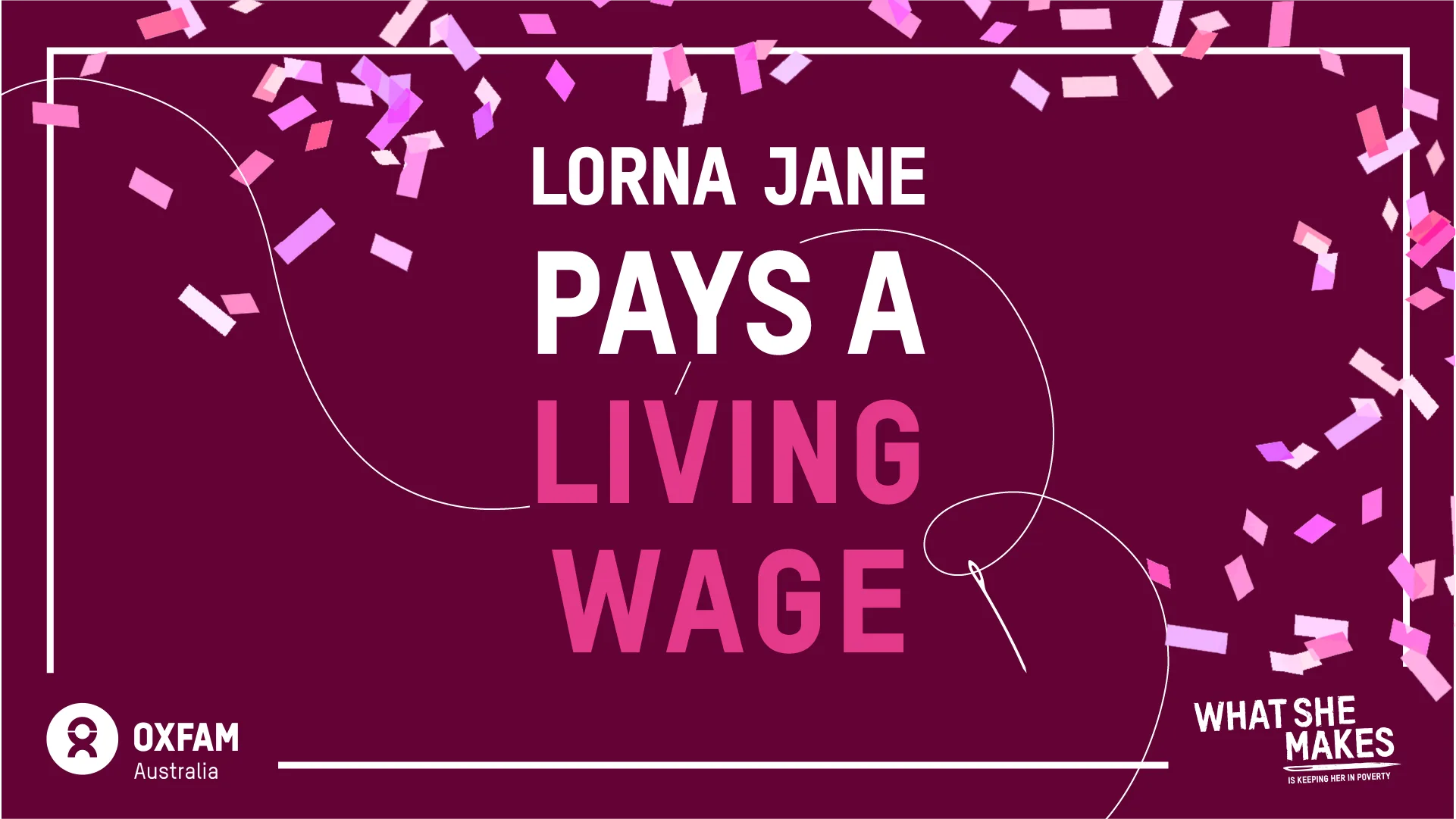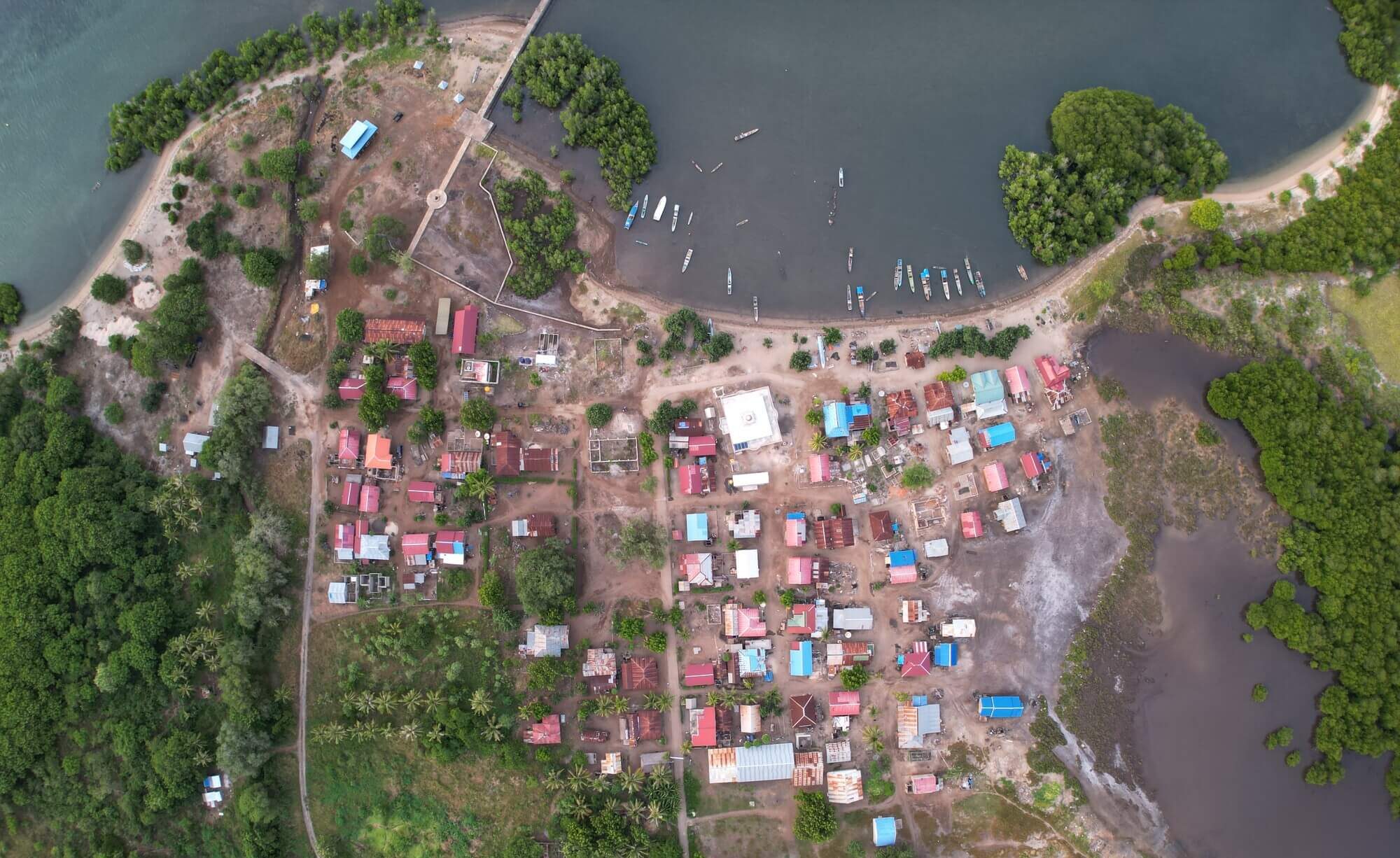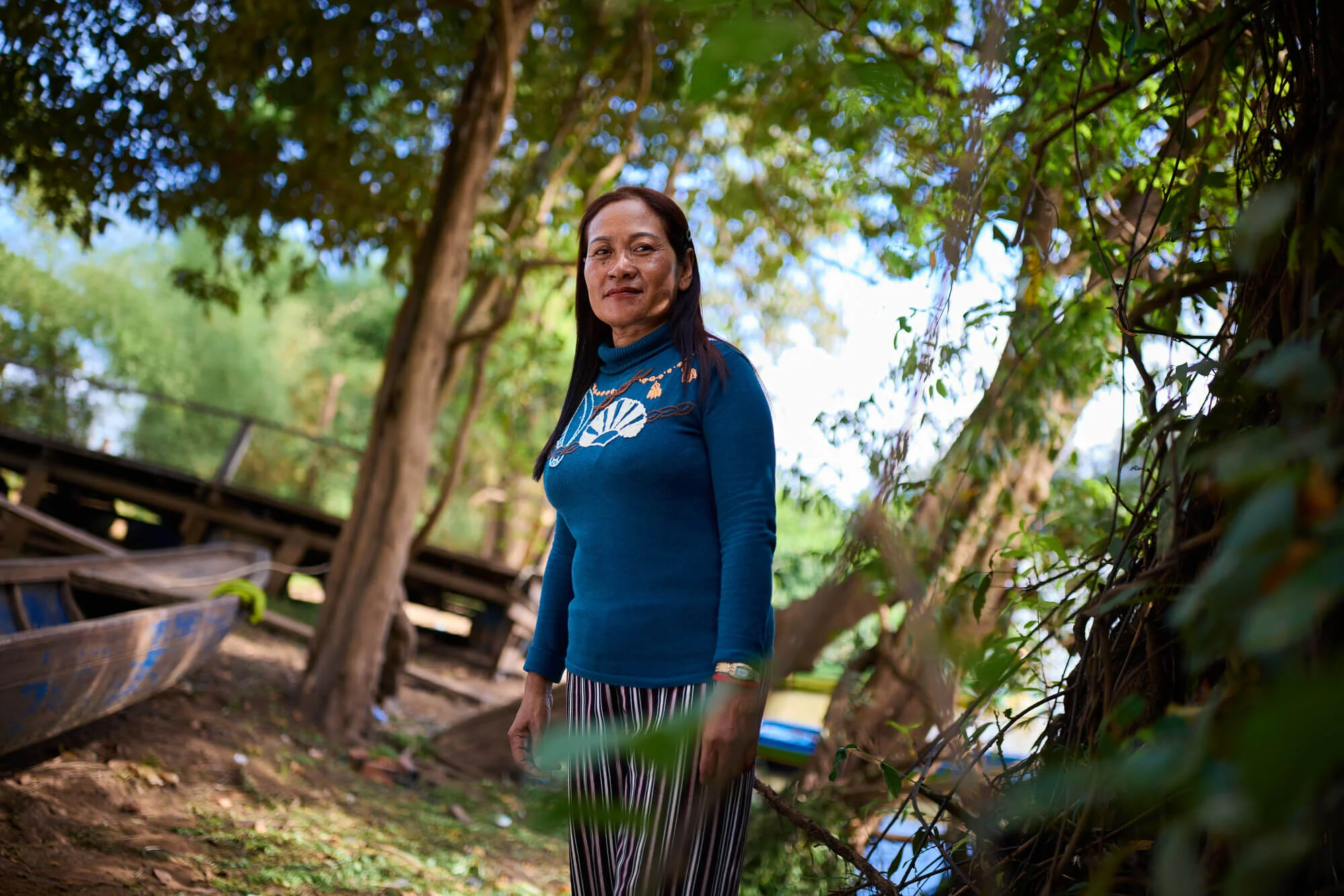Women everywhere should have access to period products, nutritious food and be free to exercise and move their body, allowing them a healthy and dignified life. But many women who make our clothes can’t afford basic necessities. Many have to work long hours over a sewing machine due to low wages, resulting in painful injuries from intense repetitive movements in their hands and cramping in their backs and necks from sitting for hours on end as they sew our clothes. But it doesn’t have to be this way.
Today on International Womens’ Day we’re calling on Modibodi and Lorna Jane, as Australian brands with a mission to empower women, to ensure the women who make their clothes underwear and activewear are paid a living wage.
Progress to a living wage
A living wage should be earned in a standard workweek (no more than 48 hours as a maximum) by a worker and be sufficient to afford a decent standard of living for the worker and her or his family. Elements of a decent standard of living include adequate nutritious food, housing, healthcare, clothing, transportation, energy, water, childcare, education, other essential needs, including some discretionary money and provision for unexpected events. A living wage should allow individuals to work and thereby lift themselves and their families out of poverty.
The good news is Modibodi has already made a commitment to pay a living wage with timed milestones and publishing of the locations of their tier one factories. Lorna Jane has published their factory list and had already made a commitment to pay a living wage. These are both steps in the right direction, but Australian brands still have a long way to go to ensure the women who make our clothes are paid a living wage. The next steps in the living wage journey are to separate labour costs to ensure wages aren’t compromised during price negotiations, as well as create and publish a road map towards implementing living wages. Oxfam Australia will continue to encourage Lorna Jane and Modibodi, as well as other leading Australian brands, to take the next steps in their journey towards paying a living wage.
The effects on women’s health
Oxfam Australia believes it’s integral that women’s health is taken into account in the discussion on living wages. The poverty the women who make our clothes experience as a result of low wages disrupts their ability to live a healthy life.
If women aren’t being paid a living wage, then they are forced to make difficult decisions that can compromise their health, as well as the health of their children. These difficult decisions occur every day for women around the world, particularly for the women who make our clothes. Tania (pictured) was 21 years old at the time we interviewed her for our 2019 report Made in Poverty and shared her impossible choice.
“If I am to look [after] my baby, then I cannot feed my stomach … [but] if I am to take care of my stomach, then I cannot feed my baby.”
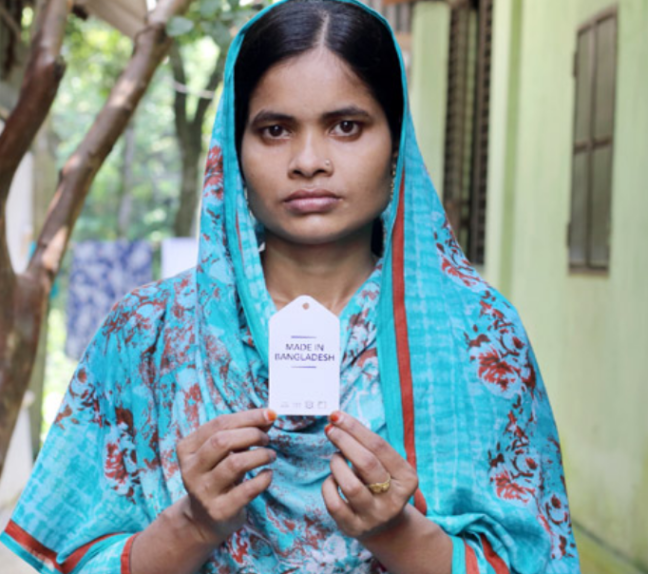
Being paid below the living wage puts pressure on the women who make our clothes to work long hours and take excessive overtime in order to supplement their low income. This can restrict their ability to see a doctor. Our Made in Poverty report found that 77% of workers in Bangladesh and 94% of workers in Vietnam are unable to take sick leave when needed. The report also found that garment workers reported fainting, feeling dizzy and worrying about not being able to leave their workstations to drink water throughout the day. A recent 2020 report from the UN Foundation
found that 57% of women garment workers surveyed in Tirupur, India have anemia.Living wages are crucial for women’s reproductive health as it enables them to be able to afford necessities such as clean water and menstrual hygiene products. The Made in Poverty report found that three-quarters of workers interviewed in Bangladesh factories supplying major brands in Australia had no running water inside their home. Research from Water Aid Bangladesh
found that reduced income during the pandemic has led to discontinuation or gradual replacement of preferred feminine hygiene products, causing unwanted stress and anxiety among many women, particularly low-income women like garment workers (2020).This International Women’s Day, congratulate Lorna Jane and Modibodi for taking the next step in their living wage journey. Watch this space and stand ready to call on them to champion their values of women’s health in future campaign moments.
